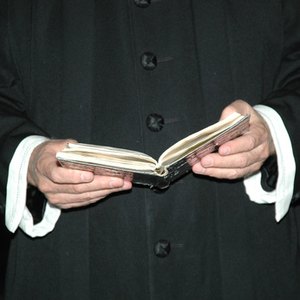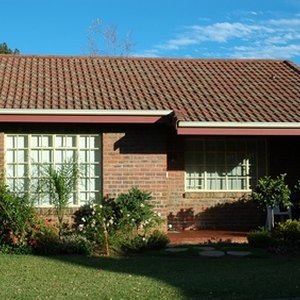
Because of the special nature of a minister's duties and the many forms of compensation clergy receive, filing taxes can be a confusing affair for religious figures. This is especially true when determining tax deductions. Clergy qualify for the same deductions as everyday people, but also enjoy a number of special tax benefits.
Parsonage and Housing Allowances

Ministers may exclude the fair rental value of church-provided housing from their income. They may also exclude housing allowances so long as the money is used for home-related expenses, such as utilities and mortgage interest. The amount excluded for parsonage or housing allowances should not exceed the minister's pay. This exclusion applies to income tax only. Parsonage and housing allowances are subject to self-employment tax.
Self-Employment Tax
Ministers who are considered self-employed must pay a self-employment tax on earnings of $400 or greater. This tax covers employer contributions to Medicare and Social Security. You may deduct half your self-employment tax as an expense on your income tax form, however.
It is possible to receive an exemption from self-employment tax if you are morally opposed to public insurance. Fill out Form 4361 to request an exemption from the IRS.
Work-Related Expenses

Deduct any expenses you pay in the course of fulfilling your duties. Examples include work-related travel, seminar fees, subscriptions to religious publications and the cost of vestments.
Certain education expenses are also deductible, so long as they do not provide training for a new occupation. If you earn less than $65,000, or $135,000 filing jointly, you may deduct up to $2,500 in student loan interest.
Health Insurance and Medical Expenses

Health and dental insurance for you and your family are deductible when calculating income tax. You may also subtract medical expenses in excess of 7.5 percent of your gross income.
Other Deductions

The IRS allows tax filers to deduct taxes paid on real estate as well as state and local taxes. Ministers may also receive deductions for charitable donations made to a qualified nonprofit. Other common deductions a minister might qualify for include IRA and 403(b) contributions, payments into a health savings account (HSA) and child care expenses up to a certain amount.
References
- IRS: Topic 417 - Earnings for Clergy
- Clergy Tax Net: Top Ten Tax Deductions
- TurboTax: Ministers and Taxes
- IRS. "Publication 517: Social Security and Other Information for Members of the Clergy and Religious Workers," Page 2. Accessed Oct. 30, 2020.
- IRS. "IRS Provides Tax Inflation Adjustments for Tax Year 2020." Accessed Oct. 30, 2020.
- IRS. "Publication 517: Social Security and Other Information for Members of the Clergy and Religious Workers," Page 8. Accessed Oct. 30, 2020.
- IRS. "Publication 517: Social Security and Other Information for Members of the Clergy and Religious Workers," Page 9. Accessed Oct. 30, 2020.
- IRS. "Publication 517: Social Security and Other Information for Members of the Clergy and Religious Workers," Page 3. Accessed Oct. 30, 2020.
- Tax Slayer. "Ultimate Tax Guide for Ministers." Accessed Oct. 30, 2020.
- IRS. "Publication 517: Social Security and Other Information for Members of the Clergy and Religious Workers," Page 6. Accessed Oct. 30, 2020.
Writer Bio
Daniel Foster has been writing about computers and technology since 2006. His work has appeared on websites including Salon, Pingdom and Internet Blog. His photography has been printed in "Maxwell Magazine" as well as the "World of Knowledge" textbook series for children. He is pursuing a Bachelor of Science in international trade and finance and a Bachelor of Arts in German from Louisiana State University.

